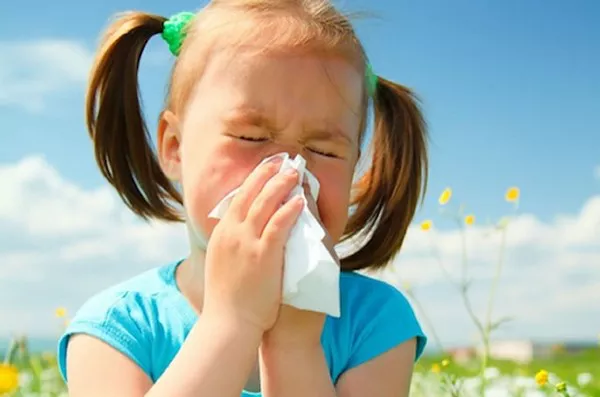Seasonal allergies, often mistaken for colds or the flu, continue to afflict many Kentuckians, and experts highlight that these allergic reactions can be brought about by specific seasonal allergens. While commonly associated with spring and summer due to the prevalence of tree and flower pollen, seasonal allergies can also rear their heads during the fall.
Jonathan Chadwick, an otolaryngologist practicing at Mercy Health Paducah Ear, Nose, and Throat, sheds light on the prevalence of allergy-related maladies in the state. Chadwick points out that Kentucky grapples with notably high instances of allergy-induced conditions during the fall.
According to Dr. Jonathan Chadwick, ragweed and mold spores are the primary culprits behind sinus inflammation cases in Kentucky during the autumn season. “Fall allergies are worse in Kentucky than I’ve ever seen,” Chadwick remarks, adding, “I’ve lived all over the country and the world, and I haven’t seen it entirely like they are here.”
Chadwick emphasizes that grasses such as ragweed, alongside mold spores, are the leading contributors to seasonal allergies during this period. Ragweed, in particular, emerges as a major offender. “Ragweed is the biggest offender,” Chadwick explains, “But everything is in bloom more so than summer and spring, so specific allergies are worse in the fall.”
The pollen from ragweed is prevalent from August through November, and Chadwick notes that this airborne irritant can traverse state borders. “Ragweed can blow for hundreds of miles,” he elucidates. “So, it can be ragweed in Illinois blowing down to us, and then it makes its way into your mucus membrane through your nose, mouth, and eyes and then causes symptoms. It’s something that most humans are sensitive to.”
The combined effects of ragweed and mold can lead to inflammation of the mucus membranes in the nasal passages and sinuses, potentially culminating in sinusitis or rhinosinusitis. Chadwick describes how these allergens can bring about congestion and sinus pressure, impacting one’s ability to breathe comfortably.
Seasonal allergy symptoms mirror those of various illnesses and encompass a runny nose, congestion, dry cough, and a sore throat. Dr. Chadwick underscores that while complete avoidance of seasonal allergies is challenging, over-the-counter antihistamines like Zyrtec, Claritin, Allegra, and Xyzal can help mitigate inflammation.
Chadwick also offers guidance to individuals who work outdoors or amid grassy environments, recommending the use of masks and goggles to lower the risk of extended exposure to allergens.


